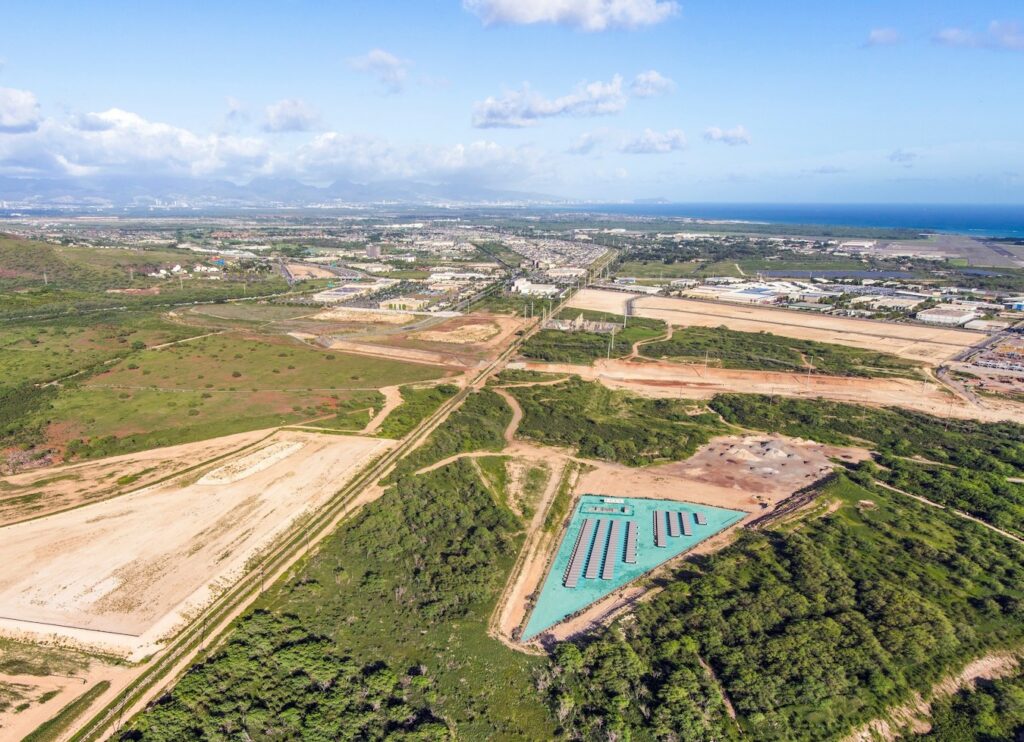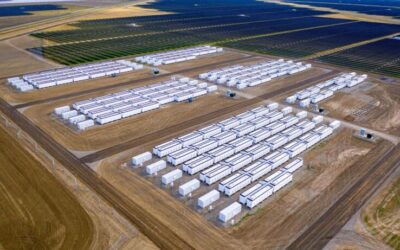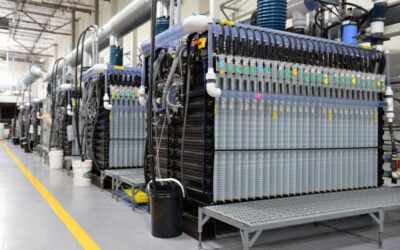
Developers of two large-scale battery projects in Massachusetts have appeared before the general public at hearings hosted by the state’s Energy Facilities Siting Board (EFSB).
Comprising Medway Grid Battery Storage, a 250MW/500MWh battery energy storage system (BESS) and the Cranberry Point 150MW/300MWh BESS, Public Comment Hearings were held on 13 July and 14 July respectively.
Both projects have asked for special conditions to enable their development from the Energy Facilities Siting Board despite local authority restrictions, requesting for their approval as being in the public interest.
Medway Grid LLC, a company established to develop the project that bears its name, was awarded a 250MW capacity contract by regional electricity network operator ISO New England, to provide capacity in the Southeastern New England capacity zone by June 2024.
Try Premium for just $1
- Full premium access for the first month at only $1
- Converts to an annual rate after 30 days unless cancelled
- Cancel anytime during the trial period
Premium Benefits
- Expert industry analysis and interviews
- Digital access to PV Tech Power journal
- Exclusive event discounts
Or get the full Premium subscription right away
Or continue reading this article for free
Christina Wolf, head of development for the company, noted also that it will make a significant contribution to meeting Massachusetts’ state goal of deploying 1,000MWh of energy storage by 2025. The Commonwealth is targeting net zero greenhouse gas (GHG) emissions from all sectors of its economy by 2050.
While Massachusetts was an early adopter among US states of a policy target for storage (introduced as 200MWh by 2025 in 2017 and later upped), most battery storage development has been focused on solar-plus-storage through the Solar Massachusetts Renewable Target (SMART) scheme with projects much smaller than Medway and Plus Power’s proposals.
The state was also the first in the US to introduce a Clean Peak Standard, which mandates a proportion of peak demand must be met from low emissions sources and more recently is targeting significant offshore wind development off its coast, which would require much greater storage as well as transmission capabilities.
Medway Grid was launched by energy storage developer Able Grid, the development assets of which were bought by infrastructure investor Eolian. Medway Grid submitted a petition to the EFSB in March to construct the standalone BESS facility and a new electric substation, close to an existing transmission corridor and connected directly to the transmission grid via utility Eversource’s substation in Milford Street.
Wetlands expert Marc Bergeron of environmental permitting consultancy Epsilon presented on behalf of Medway Grid that construction on the project site would present limited environmental impact since it is already in-use land that was previously logged for timber.
Other points noted by Bergeron included that there will be no solid or hazardous waste stream from operations and that it will have no impact on vegetated wetlands.
Tesla’s Megapack BESS product has been picked for the project. In terms of fire safety, Wolf said that the project is being designed to meet standards including UL, NPFA and other key certifications and the operator will coordinate any emergency response plans with local fire departments.
Town of Medway town manager Michael Boynton said a draft agreement has been signed with Medway Grid, and that conversations and dialogue around the project to date have been “positive”.
Another town official, Todd Alessandri asked, with the system planned to be largely unmanned and controlled and monitored remotely, how quick response times could be in the event of a fire. Andrew Kaplan, general counsel for Medway, said that in discussion with the local fire chief, the fire department would be notified directly of any incidents and that response times would therefore be “immediate”.
There will be a buffer of space between the battery facility, its infrastructure and existing vegetation, Kaplan said.
Among the first >100MW BESS projects in MA
The next steps will be to get EFSB approval, then the developer will move to get building permitting, go through the town’s Conservation Commission, as well as agreeing financial and business terms with the town authorities.
Boynton noted that Able Grid had approached the town pre-COVID with its proposal for the site, selecting the Milford Street location due to its proximity to transmission lines and the West Medway grid.
However, to go ahead, the project needs to be exempted from local zoning laws. Something similar is happening with developer Plus Power’s Cranberry Point BESS proposal in Carver, another Massachusetts town about 80.5km from Medway.
Both towns have enacted a moratorium on the development of new large-scale battery facilities until zoning laws to properly accommodate energy storage can be introduced, each lasting 11.5 months until March 2023. In the case of Cranberry Point, certain agreements were made to proceed with development before the towns introduced their moratoriums.
Medway Grid general counsel Andrew Kaplan – an attorney with Pierce Attwood – said that as a facility of 100MW or greater classified as a generation asset by ISO New England, state laws mean the development team had to file with the nine-member EFSB for approval. The board includes heads of state environment and land use agencies along with energy industry experts and union representatives.
You can watch both EFSB hearings in full on the Massachusetts Department of Public Utilities Public Hearing YouTube channel, including a broad range of questions from viewers in the local community. Watch the Cranberry Point hearing here and the Medway project hearing here.





